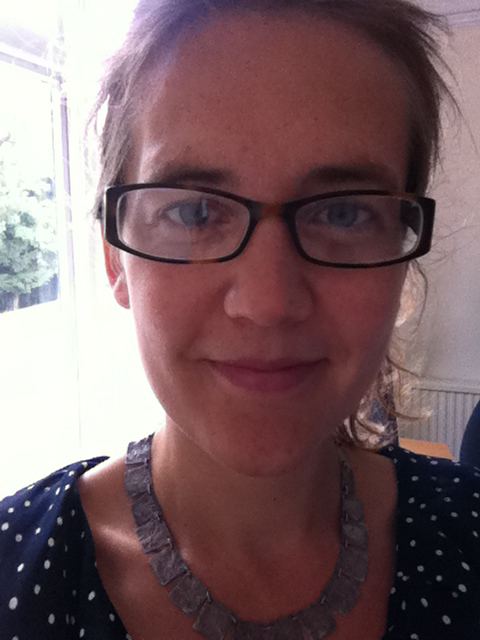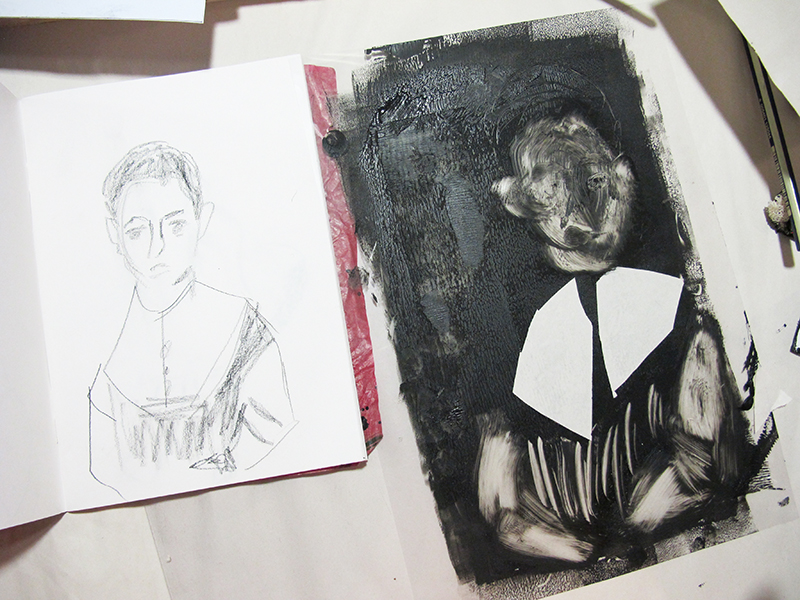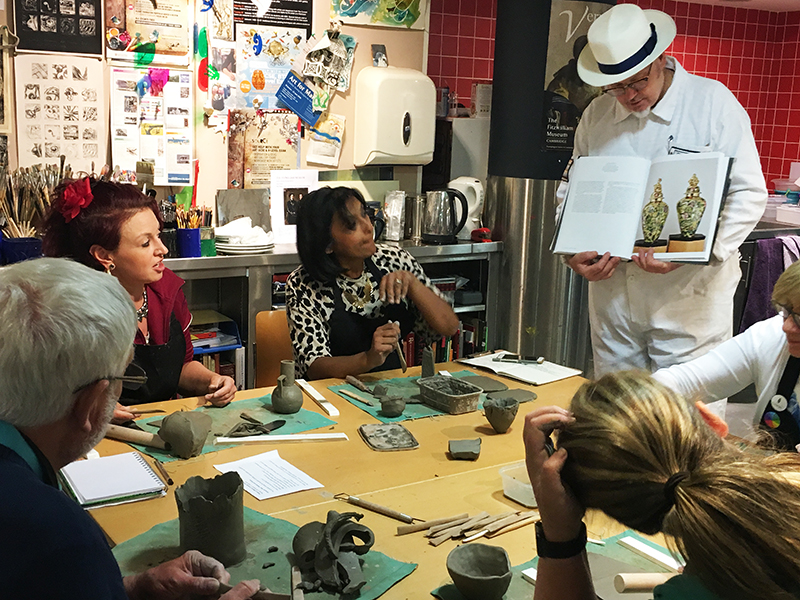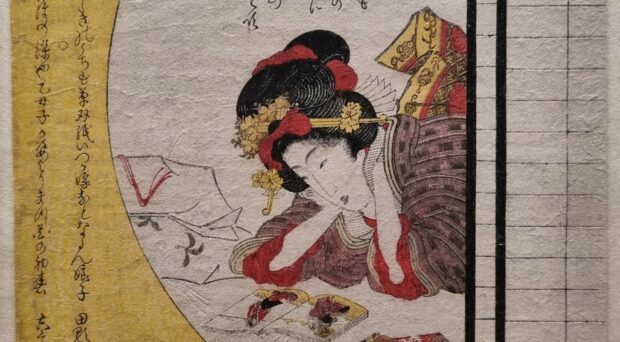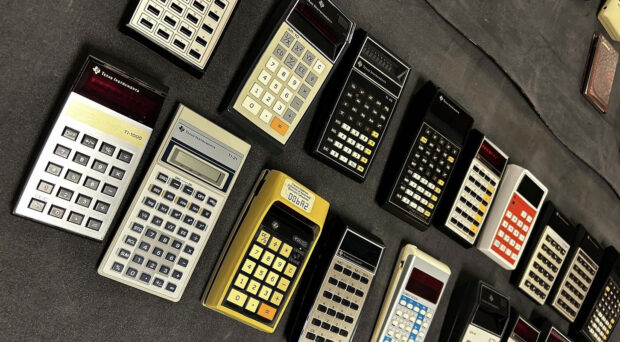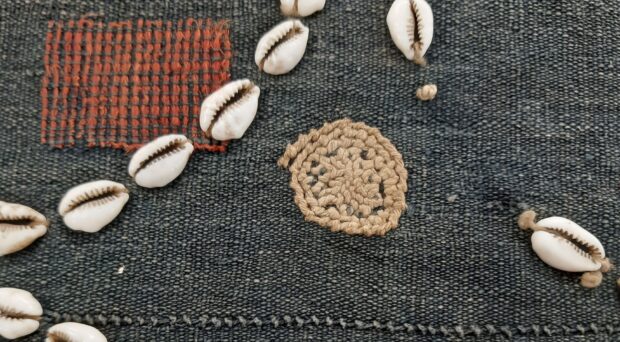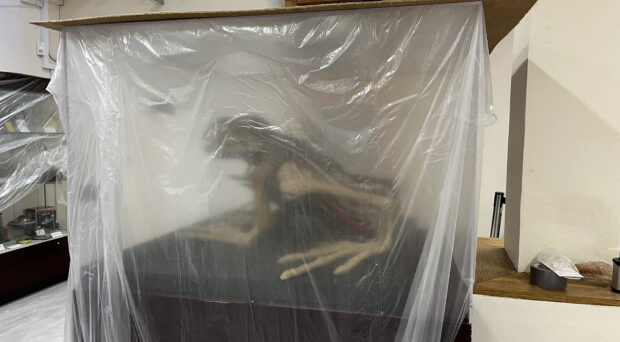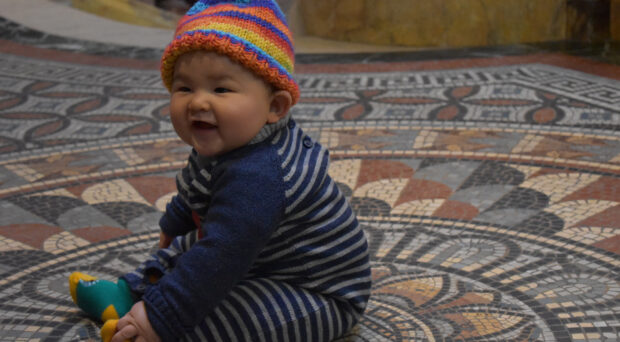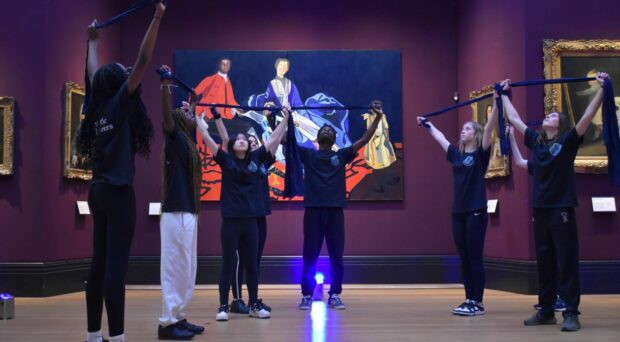Over the last 18 months we have been working hard on developing our enrichment programme for teachers at the Fitzwilliam Museum. This blog gives an overview of what we tried, what worked and what didn’t.
From September 2017 to July 2018 we ran 12 sessions for just under 100 teachers from 40 different schools. The aims of the sessions varied depending on the theme but they were designed to create a welcoming and nurturing environment for teachers to refresh their creative energy and think about working with collections. This was in response to growing concerns about teacher retention and wellbeing and recent research into the need for high quality subject-specific CPD (Continuing Professional Development). In May, I took part in the All-Party Parliamentary Group for Art and Design in Education where sector leaders such as Geoff Barton, Lesley Butterworth and Susan Coles from NSEAD, Hilary Leevers, author of Wellcome Trust Report on Developing Great Subject Teaching, and Andrea Zafirakou, Global Teacher Prize winner 2018, presented evidence on the state of art specialist CPD in schools. I went away inspired to think about how we could use our amazing collections and resources to support and promote art teaching and learning in schools.
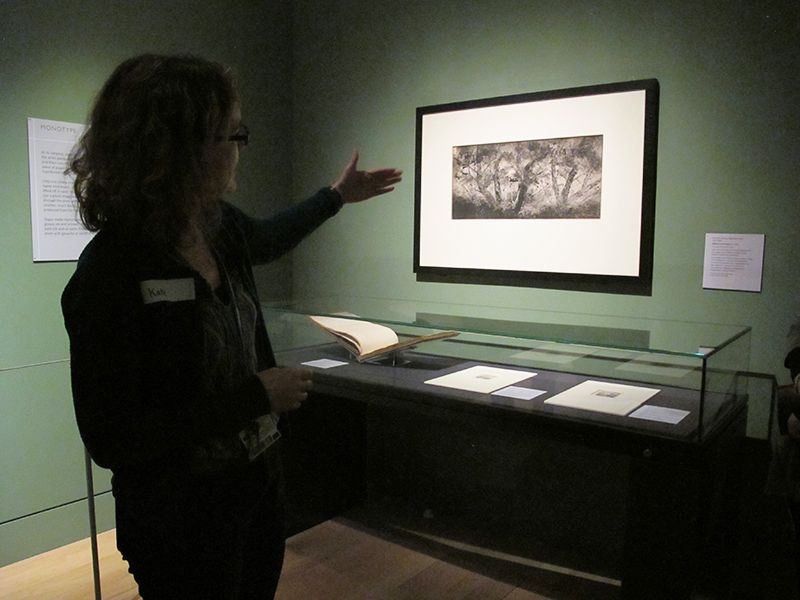
The sessions explored different ways in which teachers could work with collections; both supporting them to organise trips to museums and galleries, but also by demonstrating how object and image based approaches and resources could be used within day-to-day classroom practice. (This aligns with the work we do with trainee teachers too which you can read about in our other blog post.) We have also been working with AccessArt to document some of the art based sessions so that other teachers can make use of the resources and activities which we developed.
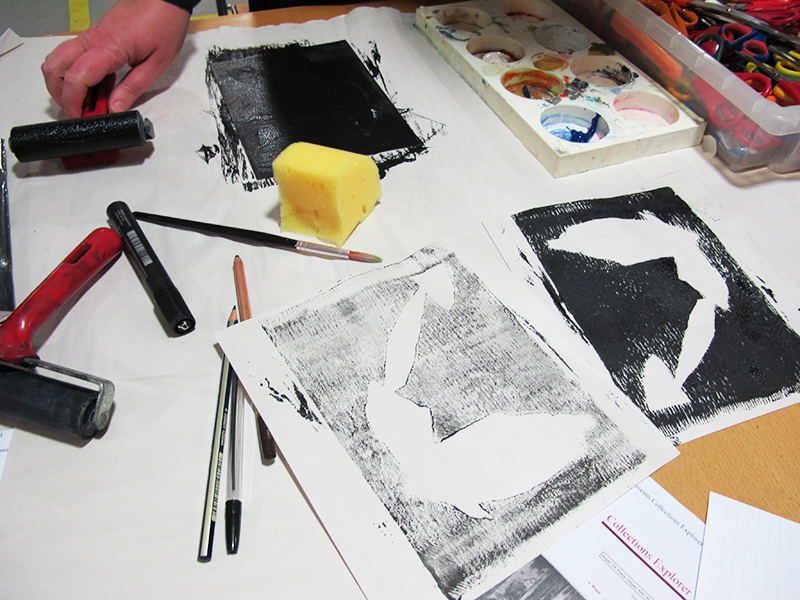
What we did
What did we offer?
There is a strong focus on Art within our CPD offer as feedback from teachers highlighted a lack of high quality practical Art CPD in the local area. We have a long standing partnership with local artists Paula Briggs and Sheila Ceccarelli of AccessArt and we have created sessions for teachers to encourage them to spend time making their on art in response to the collection and the Degas exhibition and to experiment with different art materials and techniques. We also invited Clayground Collective to lead a clay day focused on Things of Beauty Growing, our British Studio Pottery exhibition. A bespoke session for Early Years practitioners proved to be extremely popular as did a session on ‘How to Look at Paintings’. In addition to the art themed sessions, we have also run bespoke sessions for whole school staff.
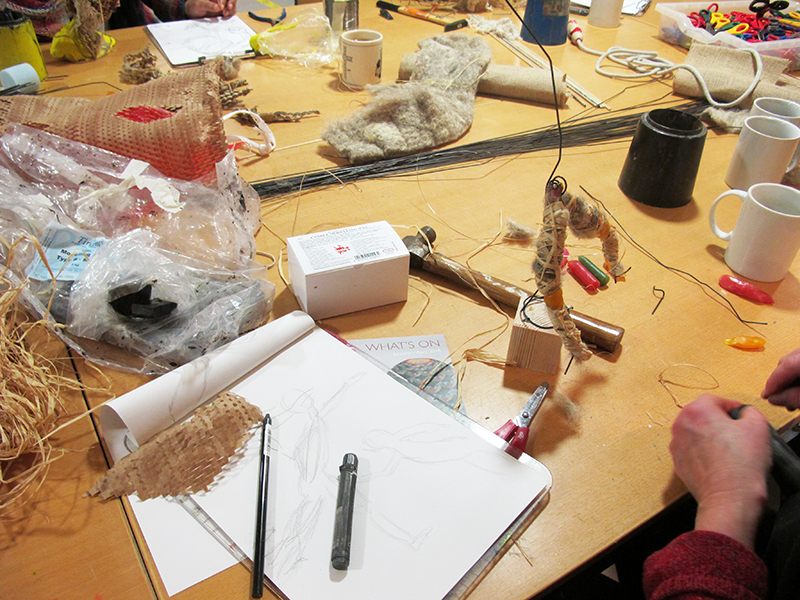
What time works best for teachers?
Many of the sessions ran outside of school hours as feedback from teachers indicated that they were finding it increasingly difficult to be released from classroom teaching for Art focused CPD. Our most popular sessions ran between 2-4pm on Saturday afternoons. We also arranged several special Sunday morning ‘private views’ for exhibition-related sessions to enable the group to have a private tour of the gallery before the museum opened.
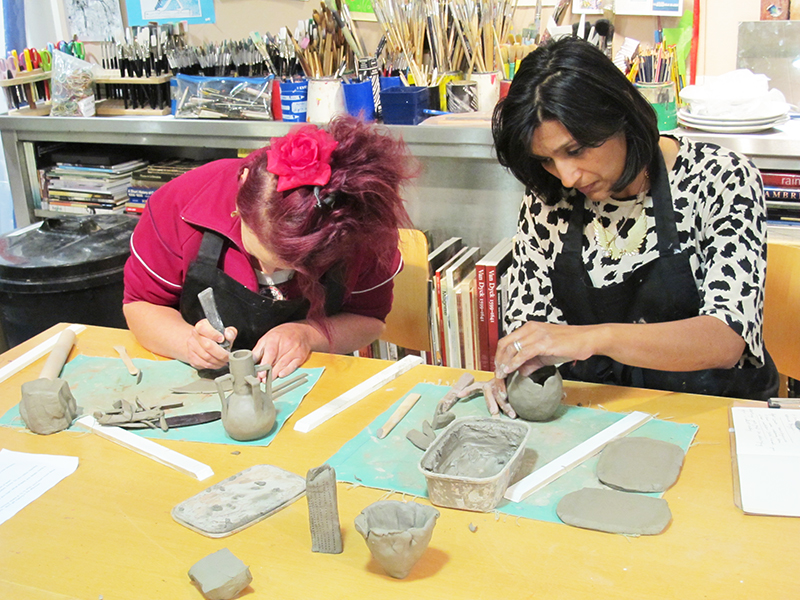
However, we did have one headteacher contacted us to say they would rather we ran the sessions during the week as she would never ask her staff to take time out of their weekend to attend training. We now try to offer the occasional mid- week session in order to meet all these different requirements.
How did we document the sessions?
In recognition of the fact that many teachers struggle to find the time to take part in art CPD we have started to compile a collection of collections based resources on the AccessArt website. These resources document the Fitzwilliam sessions and are designed to encourage teachers to try out some of the activities with their own classes. We are also using these posts as a way of highlighting the wealth of high quality online resources available on the museum website.
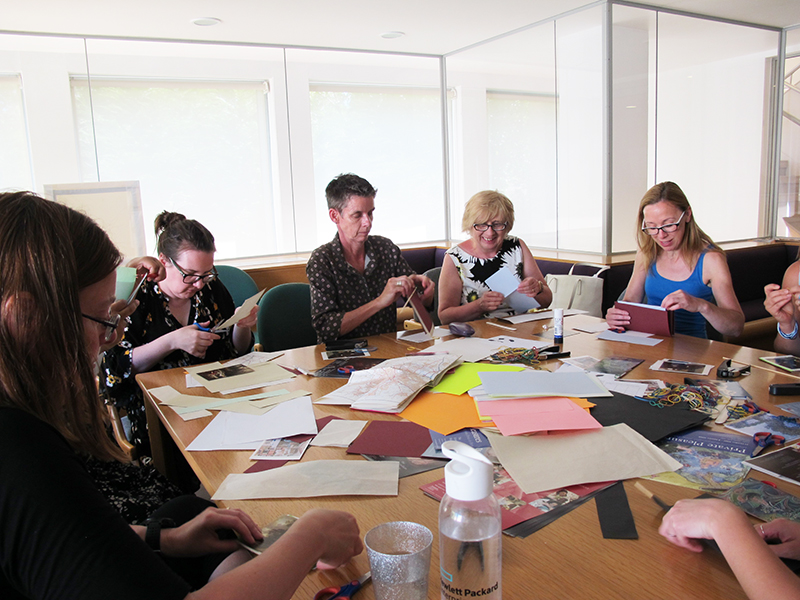
What feedback did we get from teachers?
All the teachers who took part in the enrichment sessions filled in an evaluation form at the end of each session. The feedback we collected and the conversations we had with teachers over the course of the year will be useful in helping us to plan how to develop the programme over the next few years.
What didn’t work?
We had to cancel several sessions due to poor take up. The least successful session was a maths enrichment session linked to the Codebreakers & Groundbreakers exhibition. It could be that we just didn’t have the right networks to promote this session as our mailing lists tend to be filled with teachers who have a particular interest in Art and Design, or it could be that teachers just go elsewhere for this kind of session. However, we did have some feedback that demonstrated that teachers wanted more History and Science based sessions. Perhaps these subjects are more obviously linked to museum collections in the minds of the teachers. One teacher also stated that she needed more information about the logistics of planning a sessions for a difficult class of 32 who can’t sit still and listen. Other feedback revealed that the museum is seen to be more accessible now than in the past for SEN and younger children.
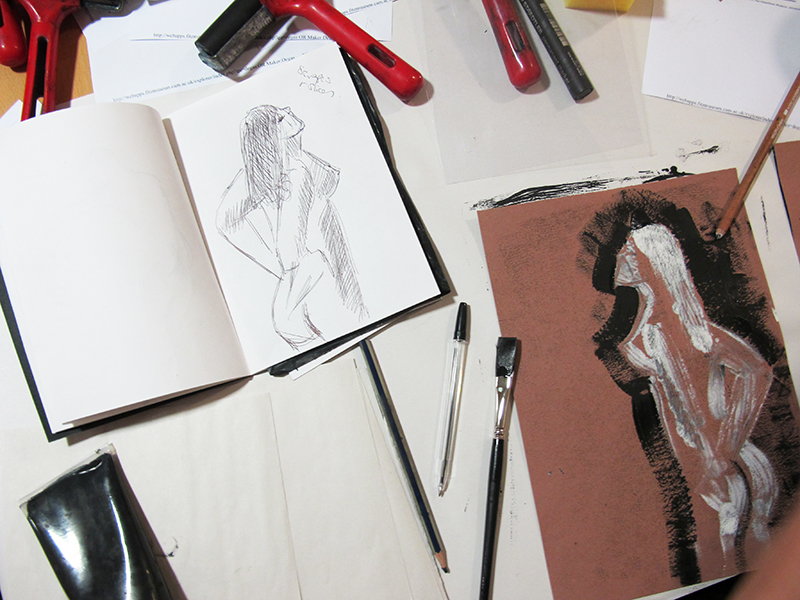
What worked well?
The sessions supported teacher wellbeing by offering time and space to respond creativity to the collection:
Teachers’ feedback comments included:
- ‘A really useful and enjoyable way to spend two hours. Very relevant ideas to use with the class.’
- ‘Very interesting and informative. Nice relaxed way of learning.’
- ‘Lovely approach. Warm and welcoming’
- ‘The pre-workshop session in the gallery was wonderful… The variety of materials was extremely exciting’
- ‘Recommend a small group session- huge wellbeing opportunities for individuals as well as art appreciation. ‘ (teacher feedback)
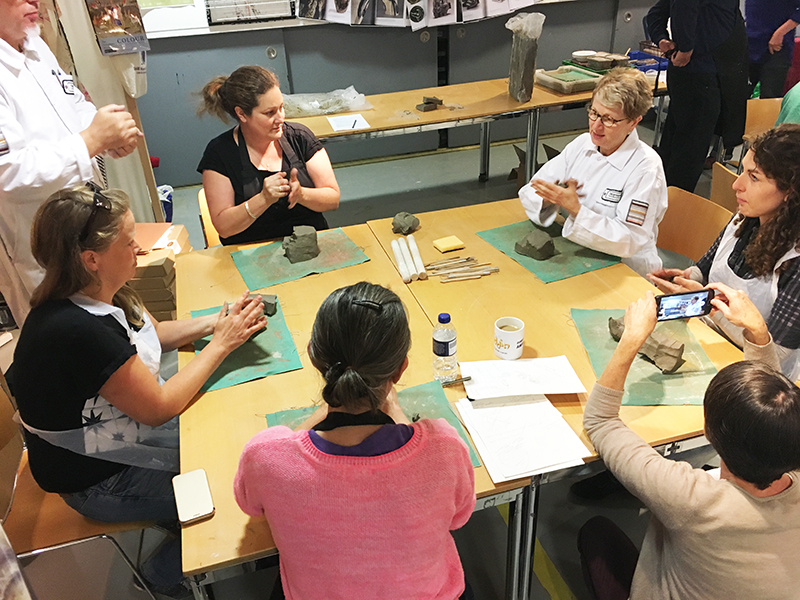 Feedback demonstrated teachers felt inspired and enriched by the sessions:
Feedback demonstrated teachers felt inspired and enriched by the sessions:
- ‘Absolutely loved it! Some inspirational ideas to use in the classroom environment. Motivated me as an individual to STOP and look!’
- ‘Feeling excited and inspired 🙂 Now I want to know more!’
- ‘Get inspired about how to us one piece of art as a launchpad to discussion and higher level thinking.’
- ‘It gave a great new perspective on how to look at artworks and link ideas and knowledge.’
Participants also stated that the sessions had raised their awareness and confidence in teaching through collections:
- ‘The session was inspirational and I came away with so many ideas to use and to pass on to colleagues, both in relation to specific subject matter and on the quality of the questioning. Thank you.’
- ‘Fantastic session I love it as a non-artist I actually drew my first picture!’
- ‘It was my first time at the museum, great session. Thank you.’
- ‘I have been worried about the potential disruption 2-4 year olds could cause but I am more confident that visit would be relaxed and relevant (and fun!).’
- ‘We already bring children but I feel more confident to run a self-led session.’
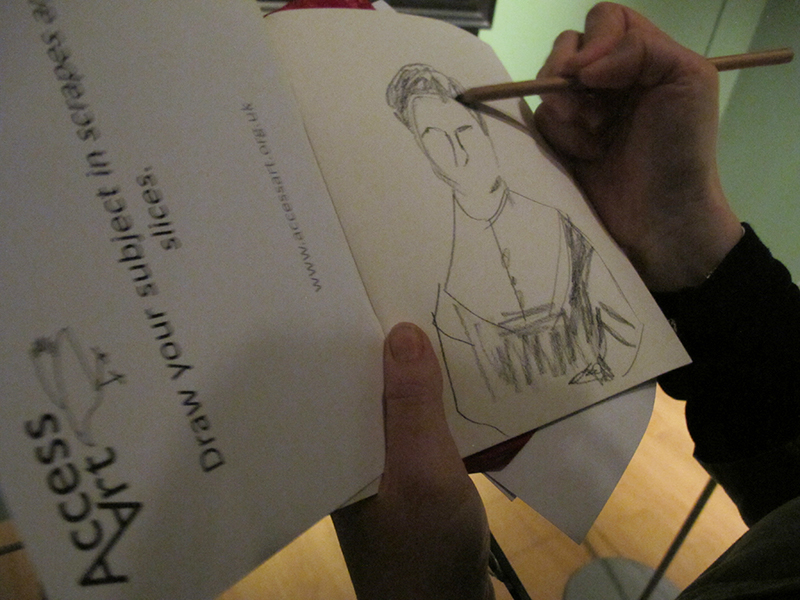
The sessions also raised teacher awareness of how they could using collections based resources both in classroom and as part of a museum visit:
- ‘Really made me think and really made me think how I would teach what I learnt today with my class.’
- ‘I think we will make more visits to the museum using the downloads from the online website.’
- ‘It is difficult to book into the museum due to your popularity and due to our mixed year classes, we don’t always know what we will be planning in enough time. However, this has given me lots of confidence to teach about art in the classroom situation.’
- ‘The session was well paced with very clear ideas of how to transfer the skills and ideas to a class.’
- ‘Lots of ideas for me to go away and try out in class.’
- ‘I have a better understanding of how to use collections in the classroom and how to get the children to look more closely at details.’
The timings of the sessions worked well and teachers were happy with the content and format:
- ‘The weekend sessions work very well – the rush of the school day does not impact. Thank you very much.’
- ‘Deep conversation and discussion into individual pairings as opposed to a superficial overview of everything.’
- ‘Really nice length of time and content- lots of info and time to reflect but not overload.’
- ‘Can we have more sessions please!’
If you’d like to know more about professional development opportunities for trainee and serving teachers at the Fitzwilliam Museum, please visit the museum’s website.

